Succeeding in business on Martha’s Vineyard has always been challenging. First, and maybe foremost, owners and managers have to literally crush it during the summer and bumper months to make those winter payments. As if rising commercial rents, supply issues, and slim profit margins weren’t enough, employers now frequently face an additional challenge: finding housing to recruit and keep their best employees.
“Unfortunately, if you don’t have a housing strategy, you don’t have a business plan,” said Sophia Brush Warren. She’s the chief operating officer of Vineyard Decorators, a year-round business near the airport. Both Warren and her brother, Whitney Brush, grew up on the Vineyard. They have cousins, aunts, and uncles here. “I don’t think anyone who grew up
here didn’t see this coming,” she said.
And so, almost three years ago, Brush, who owns Vineyard Decorators, bought the first house for employees and added another, with two apartments, in the middle of the pandemic. Almost immediately, the business recruited two interior architects and set aside another of the housing spaces for seasonal employees. This summer, that seasonal employee space will house two more full-time employees.
In many ways, Warren believes the business has landed on a sustainable approach by turning, when possible, to Island high school and returning college students to augment the employee pool come June. Their housing is a given and it allows some to explore a possible career. She also applauds ongoing efforts to increase affordable housing. Nonprofit developer Island Housing Trust, for instance, is aiming to build 150 new rental and ownership units in the next two years, primarily for those who make less than the county’s median income.
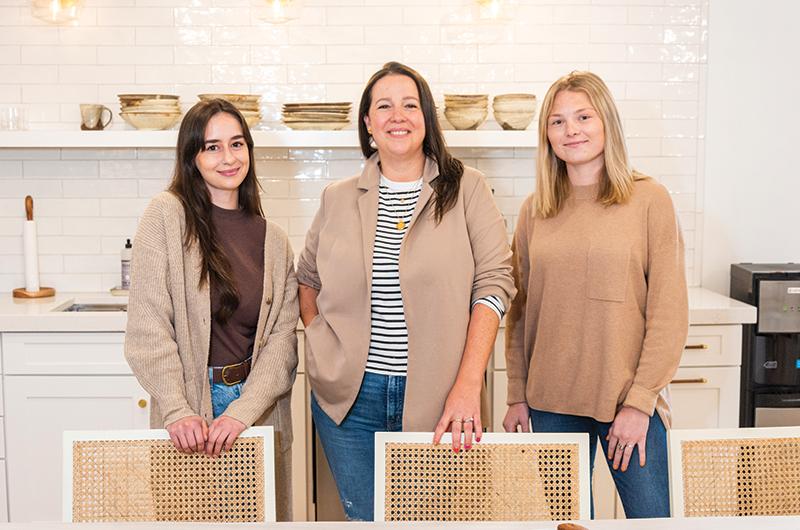
But Warren worries that the Island is becoming unlivable for professional families. “We need to start thinking about the families that make $65,000 to $95,000, because that’s your skilled workforce,” she said. “This is a much bigger problem than putting up seasonal employees.”
Evidence of that problem is now well known. For all those old-timers who yearn for the good old days when the Island virtually shut down in the winter and summer held fewer options, that dream may be starting to come true. The Island’s only dry cleaners closed in February, just when it was time to drop off the sweaters, because the manager and his family could not find housing. Around that same time, Stop & Shop Pharmacy in Edgartown stopped filling prescriptions on weekends due to a lack of staffing. And on this pet-loving Island, many can’t find a veterinarian without heading to Falmouth, a situation that isn’t likely to change soon.
Today, even the Island school district’s superintendent has faced the hurdle of finding an affordable, year-round home. After selling their house a few years ago in anticipation of moving, the family decided to stay. Then the hunt began. “We found it challenging to buy back on the Vineyard,” recalled Richie Smith. “What made things difficult was [that] we were faced with considering buying underwhelming homes that had overwhelming prices.” Now settled into a purchased cottage, Smith said the experience made him hypersensitive to the market staff face in securing permanent housing.
For Sara Dingledy, principal of the Martha’s Vineyard Regional High School, the cost of losing the best and the brightest over escalating housing costs on a resort island is becoming increasingly painful. “We’re feeling it more this year than ever,” she said. In addition to losing a young teacher who could not find housing for her family, Dingledy said she’s likely to lose two more when the school year ends.
“These losses cause enormous disruptions to the people who build programs and who served as anchors for kids,” she added. “When people leave it’s a real gut punch. Even for vacancies, your pool is immediately narrowed; it’s almost always a fixed pool of people who are already here.”
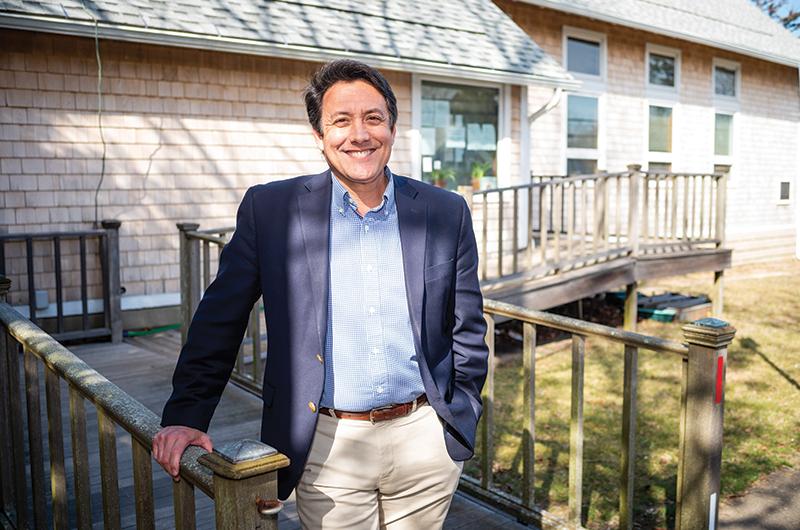
She echoes the concern of Warren: unless the Island can somehow create a mid-market for certified and professional individuals and their families, these individual losses will only multiply and leave deeper, more long-lasting wounds.
“We pay well for essentially a middle- to upper-middle-class job, which is what teaching is,” she said. “But these families don’t make enough to enter a resort, second-home market of $1 million to $2 million homes.”
As of now, the Martha’s Vineyard school district hasn’t officially gone into the house-hunting business. Partially, Smith said, that’s because some Islanders have offered reasonable school-year rentals: in the first day, out the last – or, failing that, October to May, leaving teachers to scramble in the remaining months. But that small but meaningful largesse is fast becoming a proverbial drop in the bucket. Across the Island, employee housing, workforce housing, whatever the label, is often now the only sure-fire way Island business managers and owners can secure and retain critical staffing.
No one knows that better than Denise Schepici, the president and chief operating officer of the Martha’s Vineyard Hospital. The hospital owns eleven properties, which collectively provide thirty-three bedrooms, and leases additional housing to add another 174 bedrooms for a total annual cost of $2.5 million.
The biggest employer on the Island has a 23 percent vacancy rate for positions and Schepici puts the problem squarely on housing costs. “We had [nine] employees who left because of housing. One was a midwife with a fifteen-year-old kid and the rent went up 50 percent. We pay a good salary, but we couldn’t match that.”

Thirteen candidates have recently declined offers, including two doctors. And twenty-one additional candidates opted out of the interview process altogether when they took a look around at housing options.
With staff retiring, Schepici said her big challenge is finding the next generation of medical providers and support staff. “We want to attract young people, but they have loans, and they can’t afford to buy here, so they leave,” she explained. “People who graduate from high school here don’t want to come back and live with their parents forever, so we need to be creative.”
Topping her agenda this past winter was finding a year-round rental for one of only two nurses certified to go up in the Coast Guard helicopter when bad weather merges with a dire emergency transfer. His $3,000-per-month rental jumped to $6,000, but until a suitable space was eventually found, all she could do was tell him to “hang on.”
The only way you can hold on to good employees is housing because they can’t afford to stay here otherwise,” said Chuck Wiley, who owns Vineyard Gardens in West Tisbury with his wife, Christine. “Everyone needs a nice place to live.”
Over the past few years, Wiley has purchased three properties. But even with those houses and another apartment the business has had for many years, he continues to actively look.
He’s got company. “I looked at a house in Vineyard Haven [last] summer and ten people, all of them business owners, were also looking. That hasn’t happened before,” he said. “I looked at a house this week, but they’re asking over $1 million for three bedrooms, which makes each bedroom $2,000 a month and that’s just unaffordable.”
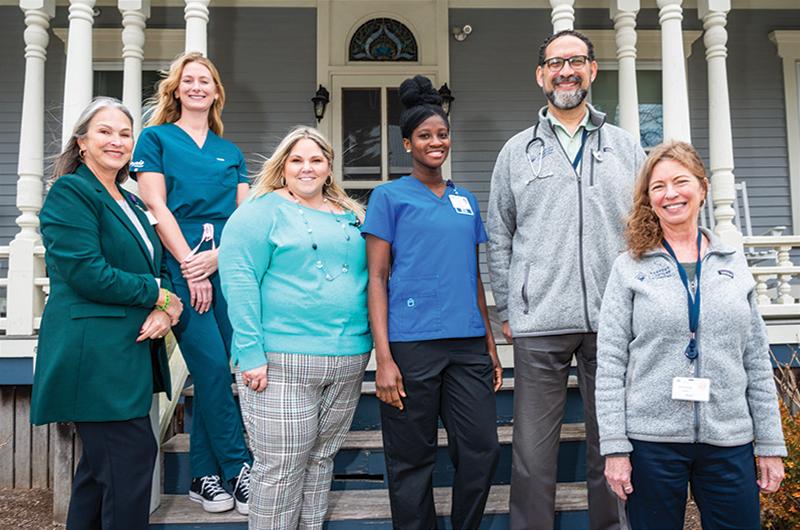
Jenna Petersiel, who has operated Chilmark Tavern in the town center for eleven years, first rented a house for employees in 2010 and has never stopped. For several years, a single house was enough for the kitchen and back-of-the-house staff, but recently, she’s needed two houses to make it through the season.
None of it, employers said repeatedly, is without risk. Petersiel, for instance, signs the lease and pays the rent directly to the owners. “Historically, I’ve eaten all the utility bills because by the time the landlords pass them on, it’s a year later,” she said. “But I could not be in business without housing these staff members.”
This past winter, she was on the hunt for a new second rental because, in an oft-repeated story, the owner decided to sell the home she had been leasing. “I’m not in a full panic yet, but I need to find another three- to four-bedroom house,” she said. Eventually, Petersiel decided to make do with the one rental she has.
Housing is now a common conversation point among small business owners, she noted. “I feel like five years ago we weren’t having this conversation, and now everyone I know is talking about housing or managed to purchase a house or two for their staff. The problem now is there’s nothing left to buy even if you have the money.”
One family-owned business that has managed to tackle their staffing problems on-site is the Taylor family of the Outermost Inn in Aquinnah. The quaint seven-room inn with rooms upstairs has become the housing needed for seven to ten summer restaurant workers, with a few sticking around to get through the winter lunch and brunch program.
It wasn’t an easy decision. For one thing, Hugh and Jeanne Taylor, until recently, also lived at the inn. Alex Taylor, their daughter who now runs the business, said there was concern about “inviting staff in the building, which was also a home.”
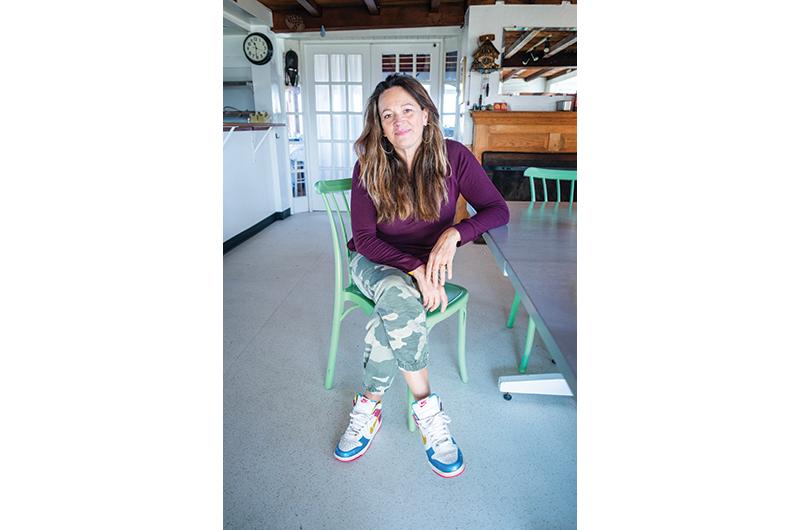
Construction in 2019 prevented the inn from opening the rooms and then 2020 brought the Covid-19 pandemic. “So, we thought, ‘Here we go,’” she said. “It’s ended up offering us a wider breadth of employee options. And it has had some benefits, both financially and in our work. It’s created an incredible bond among the staff and really fostered an incredible work environment.”
Today’s Outermost is a far cry from the seven-room inn at the end of the Island that sat just thirty people for dinner. With no concerns about disturbing the guests upstairs, the restaurant has grown considerably, and events are no longer limited by the inn’s occupancy.
But the Outermost Inn is luckier than most. The Taylors had options that enabled them to expand their special spot even if their original business model collapsed. For others, the lack of available and affordable housing is not just deflating dreams; it’s shrinking hours, services, and, in some cases, closing doors altogether.
Warren of Vineyard Decorators sums up the enormity of the problem this way: “It’s one thing to hire a single, twenty-something employee and put them in shared housing, but with a different employee mix, the situation is very dynamic and won’t be solved by businesses buying a couple of houses. It’s only one piece of a very big puzzle.”
It’s impossible to know how this story ends. Maybe the Island will become a place of transient workers where more and more jobs are temporary, not permanent. A place where young people may get an apartment or room through their employer but get locked into their own version of a “Golden Handcuff,” where advancing or leaving seems impossible. It certainly seems to portend less settling down and more passing through.
What it means for Island businesses is similarly unknown, but it’s a question many are beginning to ask themselves. “If I didn’t have the beds upstairs, my mom-and-pop business would not survive,” said Taylor. “And I don’t know about others. I worry as we move forward, what will be left standing are big restaurant groups with backers and investors, because they’ll be the only ones that can afford to buy housing.”

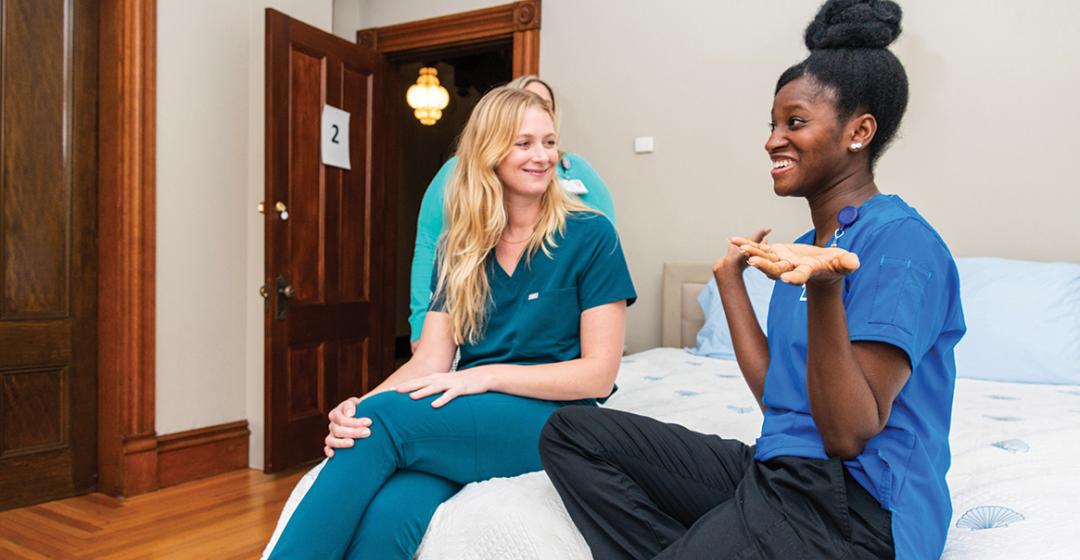


 3 comments
3 comments
Comments (3)